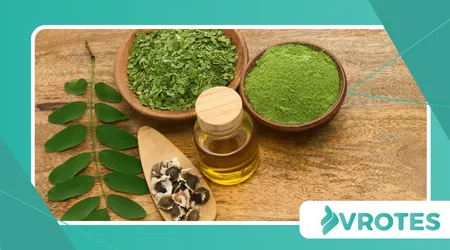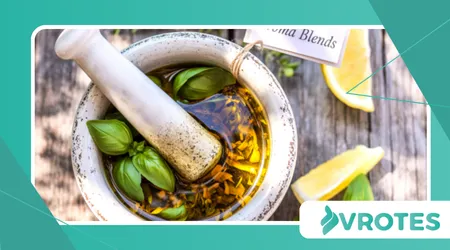Can Culinary Herbs Replace Supplements?

Can Culinary Herbs Replace Supplements. The shift toward functional foods is undeniable, with consumers increasingly seeking natural, whole-ingredient sources for their health benefits.
Anúncios
People are looking for authentic nutrition beyond isolated molecules. This involves recognizing the inherent potency of natural compounds.
What Unique Nutritional Advantage Do Culinary Herbs Offer?
Culinary herbs are nutritional powerhouses, delivering a complex synergy of vitamins, minerals, and thousands of bioactive phytochemicals.
They offer a matrix of nutrients working together, an ‘entourage effect’ that isolated supplements often lack.
The modern focus on personalized nutrition highlights the value of these diverse compounds.
Anúncios
Herbs like basil, rosemary, and thyme contain high concentrations of potent antioxidants and anti-inflammatory agents.
Consuming these regularly provides continuous, low-dose exposure to protective compounds.
What is the Key Difference in Bioavailability Between Herbs and Supplements?
Bioavailability refers to the proportion of a nutrient absorbed and utilized by the body. Many synthetic supplements face challenges with absorption.
The naturally occurring compounds in culinary herbs are often encapsulated within a food matrix, which can enhance their uptake.
For example, the curcumin in turmeric, a potent anti-inflammatory compound, has notoriously low bioavailability on its own.
However, consuming it with black pepper (which contains piperine) dramatically increases its absorption, a natural synergy we leverage in cooking. This is a critical distinction favoring whole foods.
How Do Herbs Compete with High-Dose Supplements, Can Culinary Herbs Replace Supplements?
It is impractical to expect a sprinkle of parsley to match the megadose of a Vitamin C tablet.
The real debate lies in supporting daily wellness and preventing deficiencies, not treating acute ones.
Read more: Microplastics in the Food Chain: Hidden Nutritional Concerns
In chronic health management, consistent intake of nutrient-rich herbs contributes to long-term cellular health.
They serve as a foundational, preventative strategy, similar to regularly checking a vehicle’s fluids versus waiting for a catastrophic breakdown.
Can Herbs Provide Therapeutic Doses of Specific Compounds?
For certain, high-concentration medicinal purposes, a culinary amount of an herb may not suffice.
Supplements are specifically designed to deliver a high, standardized dose of a single or select few compounds.
This targeted approach is necessary for treating diagnosed deficiencies or for acute therapeutic effects.
However, the line is increasingly blurring, particularly with standardized herbal extracts now commonly found in supplements. The distinction often rests on concentration versus matrix effect.

Magnesium Intake
One cannot realistically consume enough spinach or basil to meet a therapeutic dose of magnesium required to correct a severe deficiency.
See how interesting: The Science of “Food Combining” and Digestive Efficiency
A supplement provides the required 200−400 mg easily.
Nevertheless, daily use of dark leafy greens, a culinary herb, contributes significantly to preventing the development of that deficiency in the first place.
What Does Current Research Say About the Role of Herbs?
Research supports the role of culinary herbs as functional foods with profound health benefits.
A 2023 review published in the Journal of Functional Foods highlighted that regular consumption of common culinary spices like ginger and garlic significantly modulates the gut microbiome and improves systemic inflammation markers.
++ The Link Between Breath Retention and Cellular Oxygen Use
This effect is attributed to the whole-food synergy, suggesting benefits beyond single compounds.
How Does the Bioactive Profile of Herbs Compare, Can Culinary Herbs Replace Supplements?
The richness of an herb’s composition, its phytochemical diversity, is its main selling point. While supplements offer isolated efficacy, herbs provide comprehensive biological activity.
| Compound Class | Example Herb | Primary Function | Found in Supplements? |
| Terpenoids | Rosemary | Anti-inflammatory, Memory | Often as isolated extracts (e.g., carnosic acid) |
| Sulfides | Garlic | Cardiovascular Health | Less common as whole-compound supplement |
| Flavonoids | Oregano | Antioxidant, Antiviral | Yes, but isolated (e.g., Quercetin) |
Source: Adapted from nutritional science literature, 2024–2025 data.
The table demonstrates that while some compounds are isolated for supplementation, many synergistic agents found in the whole herb are often excluded.
Are There Any Risks in Solely Relying on Herbs?
The primary risk lies in nutritional complacency. Assuming a few herbs can compensate for an otherwise poor diet is a serious miscalculation.
Herbs support a healthy diet; they cannot correct a poor one.
Vitamin D Deficiency
No amount of culinary herbs can cure a severe Vitamin D deficiency, which requires dedicated sun exposure or a high-dose supplement.
Herbs are not a panacea for significant micronutrient gaps; they are powerful allies in optimization.

What is the Statistical Reality of Supplement Use?
According to a 2024 analysis by the Council for Responsible Nutrition (CRN), approximately $74\%$ of U.S. adults take dietary supplements.
This staggering number indicates a perceived need to bridge nutritional gaps, a reality that speaks to the inadequacy of the modern diet alone.
Can Culinary Herbs Replace Supplements# entirely for this population? Not without significant, intentional dietary change.
A Balanced Perspective on the Culinary vs. Capsule Debate
To answer the core question, Can Culinary Herbs Replace Supplements#?: not entirely, and not for everyone.
Culinary herbs are like the foundational bricks of a healthy house: essential for structural integrity and daily function.
Supplements, conversely, are the targeted repair crew, necessary for fixing specific, acute problems.
A smart nutrition strategy combines both: a robust diet rich in diverse culinary herbs for systemic health, with targeted supplementation to address specific, clinically identified needs or lifestyle gaps (e.g., Omega-3s, Vitamin B12 for vegans).
Why would anyone choose a handful of pills over a kitchen full of vibrant, flavorful health-boosting ingredients? The kitchen remains the most powerful pharmacy.
Frequently Asked Questions
What is a “Functional Food”?
A functional food is a whole, fortified, or enhanced food that provides health benefits beyond basic nutrition, often due to beneficial compounds like phytochemicals and antioxidants.
Do Cooking Methods Destroy the Nutrients in Herbs?
Some heat-sensitive vitamins and volatile oils can be diminished, but many beneficial compounds, like polyphenols and certain antioxidants, remain stable or, in some cases, become more bioavailable with gentle cooking.
Should I Stop Taking My Prescribed Supplements?
No. Never discontinue supplements or medications prescribed by a healthcare professional without consulting them first.
Herbal and synthetic approaches must be managed under professional guidance.
++ Increase intake of fresh herbs for everyday health
++ Several Culinary and Medicinal Herbs Are Important Sources of Dietary
